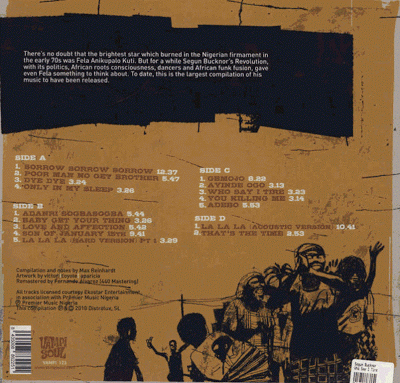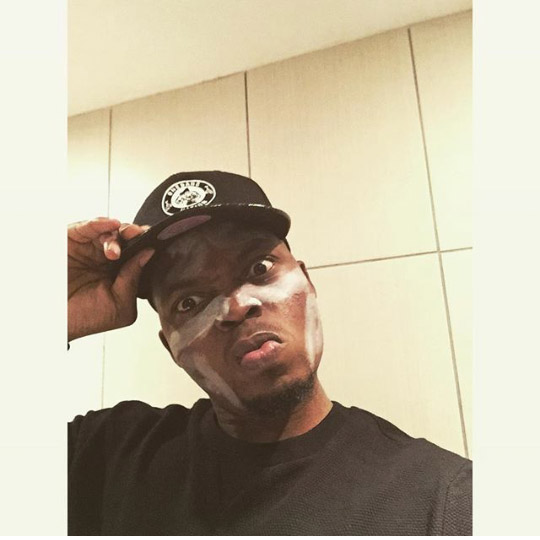It seems that when it comes to Afrobeat, the first and last name that comes to the mind of most people is Fela Kuti. However, there were many talented musicians who were Fela’s contemporaries that never garnered international recognition. Segun Bucknor was one of them. He had a very brief career that only lasted 6 years, but they were 6 glorious years. He might not have been popular internationally, but he was wildly popular in Nigeria, Ghana and Benin from 1969 to 1975. Segun Bucknor is a semi-forgotten figure in the history of Nigerian music now, so much so that the only somewhat decent photo I could even find is the obscure image from the cover of the compilation Strut released a few years ago.
Segun was born in 1946 into a well regarded Lagos musical family who was church singers and organists. What many people do not know is that Bucknor & Kuti are related, they are second cousins.
He started to play box guitar and the piano at nine years old. At age 15 formed a band with three school friends called The Hot Four, who played mostly covers of popular pop and rock songs at a point where highlife was becoming an old hat for post-independence Nigerian youth and a Beatles-aping quartet called The Cyclops had inspired a new wave of high school rock & roll bands. In 1965, Bucknor left to study arts and music at New York’s Columbia University where his eyes and ears were opened to American soul music. In 1968, he completed his studies and returned to Lagos on a mission to bring soul power to Nigeria but he found that he had been beaten to the punch by new bands like The Strangers, the Hykkers and The Funkees.
This led to the formation of his new band called The Soul Assembly, consisting of members of his old band, The Hot Four but they didn’t have much success, as much of the music The Soul Assembly and the other Lagos soul bands were playing were covers of US hits, so when The Soul Assembly disintegrated in 1969. Segun began to develop another musical vision based around his own compositions. He formed Segun Bucknor & the Revolution and headed towards a more organically African expression of soul music. The transition was marked by switching from an onstage get up of western styled suits to bare torsos, cowrie shells and shaved heads, marking a return to African tradition and roots.
In Nigeria, social and political commentary have come to be associated almost exclusively with Fela Kuti. Bucknor’s music much like Fela’s dealt with political & social issues and this did not go unnoticed by the Nigerian Government. In 1969, When the direction of Nigerian music left Fela frustrated, he decamped to the US for a tour that lasted around 10 months, leaving a vacuum filled by Bucknor, who proceeded to sing songs of social commentary, criticism and political awareness, with an almost first African jazz-funk bent and stage presence.

Who Say I Tire is a complete compilation to date focusing on the works of Segun Bucknor.
Tracks:
1. Sorrow, Sorrow, Sorrow
2. Dye Dye
3. Adanri Sogbasogba
4. Son of January 15th
5. La La La (Hard version), Part 1
6. La La La (Hard version), Part 2
7. Smoke
8. That’s the Time
9. Love and Affection
10. Who Say I Tire
11. You Killing Me
12. La La La (acoustic version)
In 1975, he turned his attentions to journalism but the political commentary and powerfully soulful sounds of his music remain a document of his glory years.
Written by Kolapo Akande
Listen and Download music from your favorite Nigerian and African artistes such as Afro-Jazz , AfroBeat , Fela , Jazz , Segun Bucknpr , The soul assembly , right here.
Keep Yourself updated with happenings in the music world by checking out our news and gist's section.





















